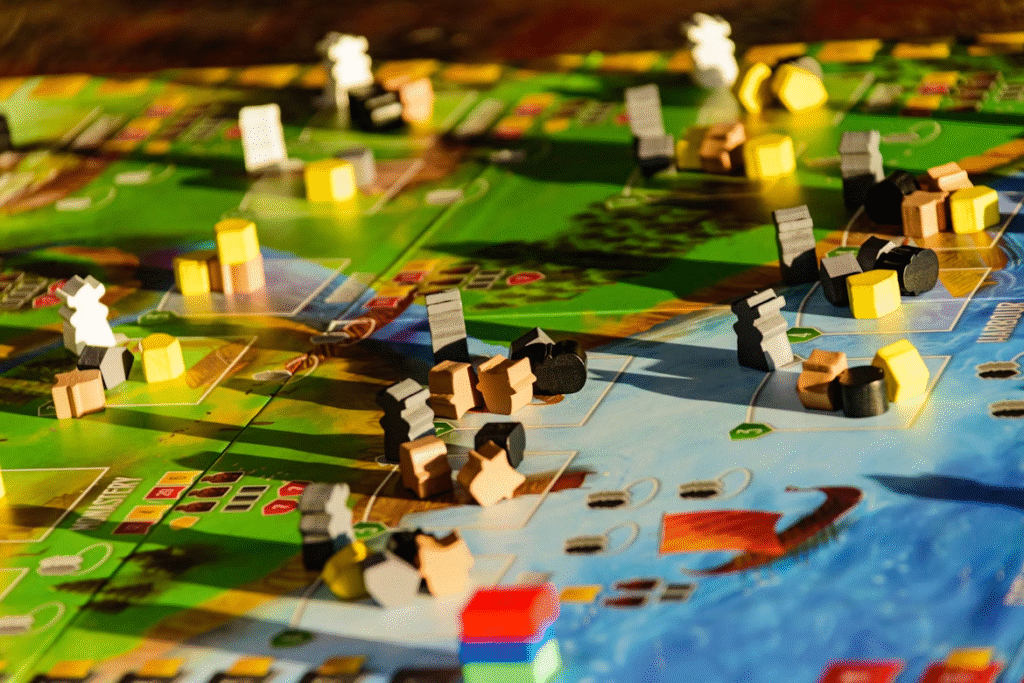In recent years, tabletop games have surged in popularity, transitioning from niche interests to mainstream sensations. This cultural shift can be attributed to several factors, including the rise of social media, the accessibility of crowdfunding platforms, and an increasing need for people to connect over shared interests. As video games and digital entertainment dominate leisure time, tabletop games have carved out a vibrant community that provides rich social interactions and immersive storytelling. The increasing availability of well-designed games that cater to diverse tastes has made it easier for newcomers to explore this engaging world.
The Evolution of Tabletop Gaming
Tabletop gaming has a long history, often considered a whimsical pastime for enthusiasts engaged in strategy, creativity, and fantasy. In the past, games such as Dungeons & Dragons laid the groundwork for collaborative storytelling, appealing primarily to niche markets. The dynamic landscape of tabletop gaming has broadened significantly in the past decade. Innovative game designers have developed titles that range from party games to complex strategy games, making it easy for individuals and groups to find something that suits their preferences. As more people discover board games and role-playing games, the demographic has expanded to include families, hobbyists, and casual gamers alike.
Influence of Technology and Social Media
As technology advances, so does the way tabletop games are marketed and distributed. Social media platforms play a pivotal role in creating a shared online space where players can express their passion for games and connect with like-minded individuals. Influencers and content creators frequently showcase gameplay sessions on platforms such as YouTube and Twitch, captivating audiences and encouraging them to participate in the hobby. Online retailers and subscription services have simplified access to tabletop games, making it easier for first-time buyers to dive into gaming. Websites offering the best tabletop action games online have contributed to this rise by presenting comprehensive catalogs, valuable reviews, and even discounts for curious shoppers. This seamless blend of digital exposure and accessibility has cultivated a thriving, global community of enthusiasts.
Cultural Acceptance and Community Growth
Social acceptance of tabletop gaming as a legitimate form of entertainment has fueled its growth in recent years. Traditional stereotypes surrounding gamers have shifted. The image of a basement-dweller has given way to a diverse community of individuals from various backgrounds and walks of life. Tabletop games now occupy a respectable spot in pop culture, boasting a wide range of themes, from high fantasy to horror, catering to everyone’s taste. Community events, such as board game cafes, conventions, and tournaments, foster a welcoming atmosphere that encourages people to join in and experience the fun together.
The Rise of Cooperative Play
Cooperative games have gained recognition, offering players opportunities to collaborate rather than compete, fostering friendships and enhancing social dynamics. Titles like Pandemic and Gloomhaven have gained massive followings due to their focus on teamwork and communication. The appeal of these cooperative experiences enables players to develop strategies together, creating memories while allowing new players to feel welcomed within the gaming community. This trend has mirrored a broader cultural movement towards collaboration and inclusivity, allowing players from various backgrounds and skill levels to unite around shared objectives, demonstrating that games can serve as a powerful tool for connection.
Educational and Cognitive Benefits of Tabletop Gaming
Beyond entertainment, tabletop games offer significant educational and cognitive advantages. Many games promote critical thinking, problem-solving, and strategic planning, helping players sharpen their mental agility in fun and engaging ways. Role-playing games, in particular, encourage creativity, empathy, and communication skills as players step into different characters and scenarios. For younger players, board games can support early learning by teaching math, reading, and social interaction. Educators and therapists alike have begun incorporating tabletop games into their practices, recognizing their ability to foster teamwork, resilience, and emotional intelligence. These benefits contribute to the growing legitimacy of tabletop gaming as a meaningful and enriching activity.
The Future of Tabletop Gaming
The future of tabletop gaming appears bright and dynamic. As more people embrace the hobby, the industry will continue to expand, with innovative designs and ideas pushing the boundaries of game mechanics and storytelling. Global events like Gen Con and Spiel draw attention to both new and classic titles, providing platforms for them to shine and reach new audiences. The blend of traditional tabletop gameplay with modern technology, such as app-assisted games, can further elevate the gaming experience. With such ongoing developments, it will be fascinating to see how tabletop games evolve and shape the social landscape in the years to come.
Tabletop games have undeniably engaged players and audiences in unprecedented ways. From maintainable friendships to unforgettable experiences, these games have adapted and thrived as they have entered the mainstream. As people flock to discover why so many find joy in this unique medium of play, it is evident that tabletop gaming has cemented its place as an important aspect of contemporary culture.


